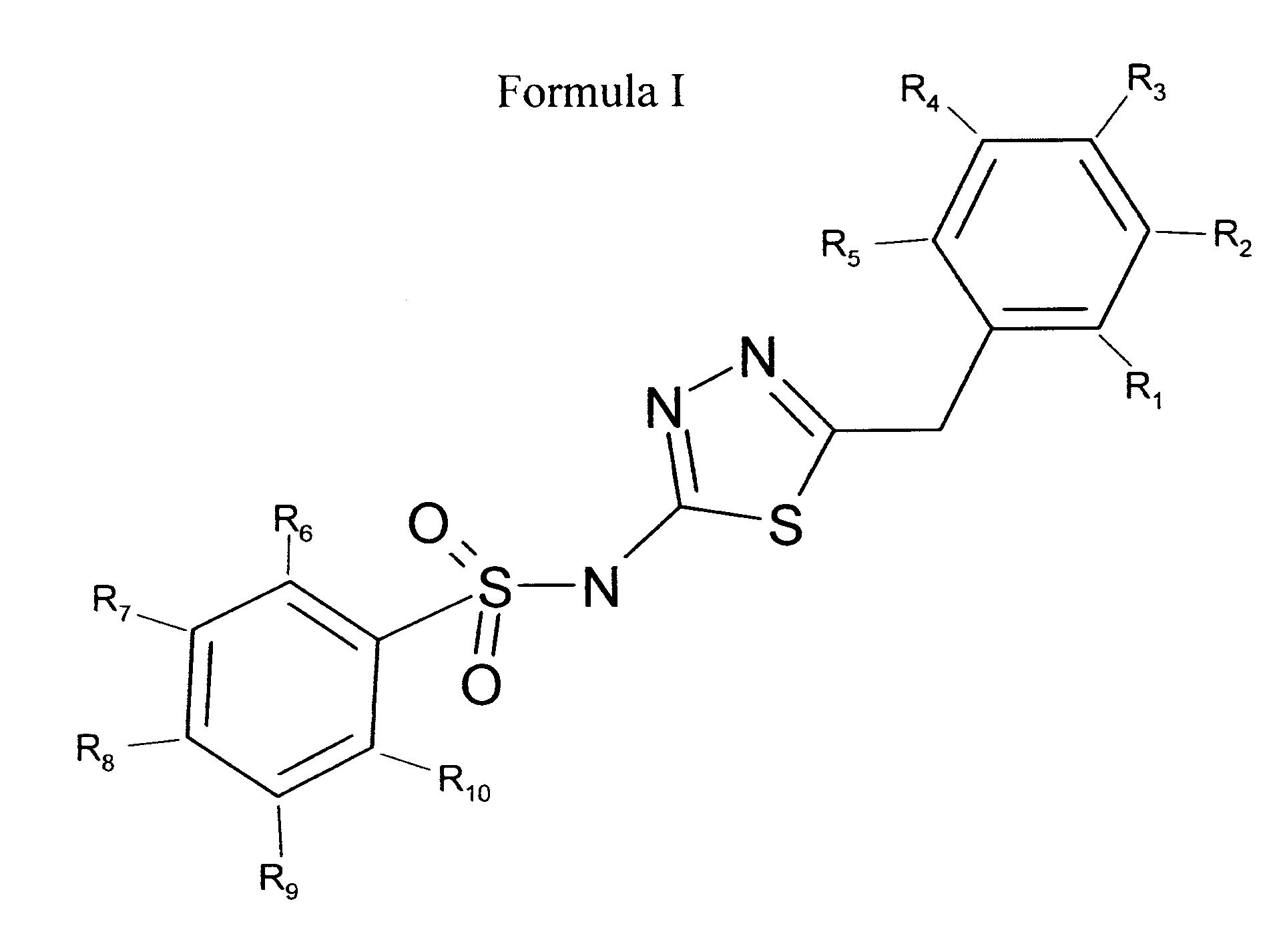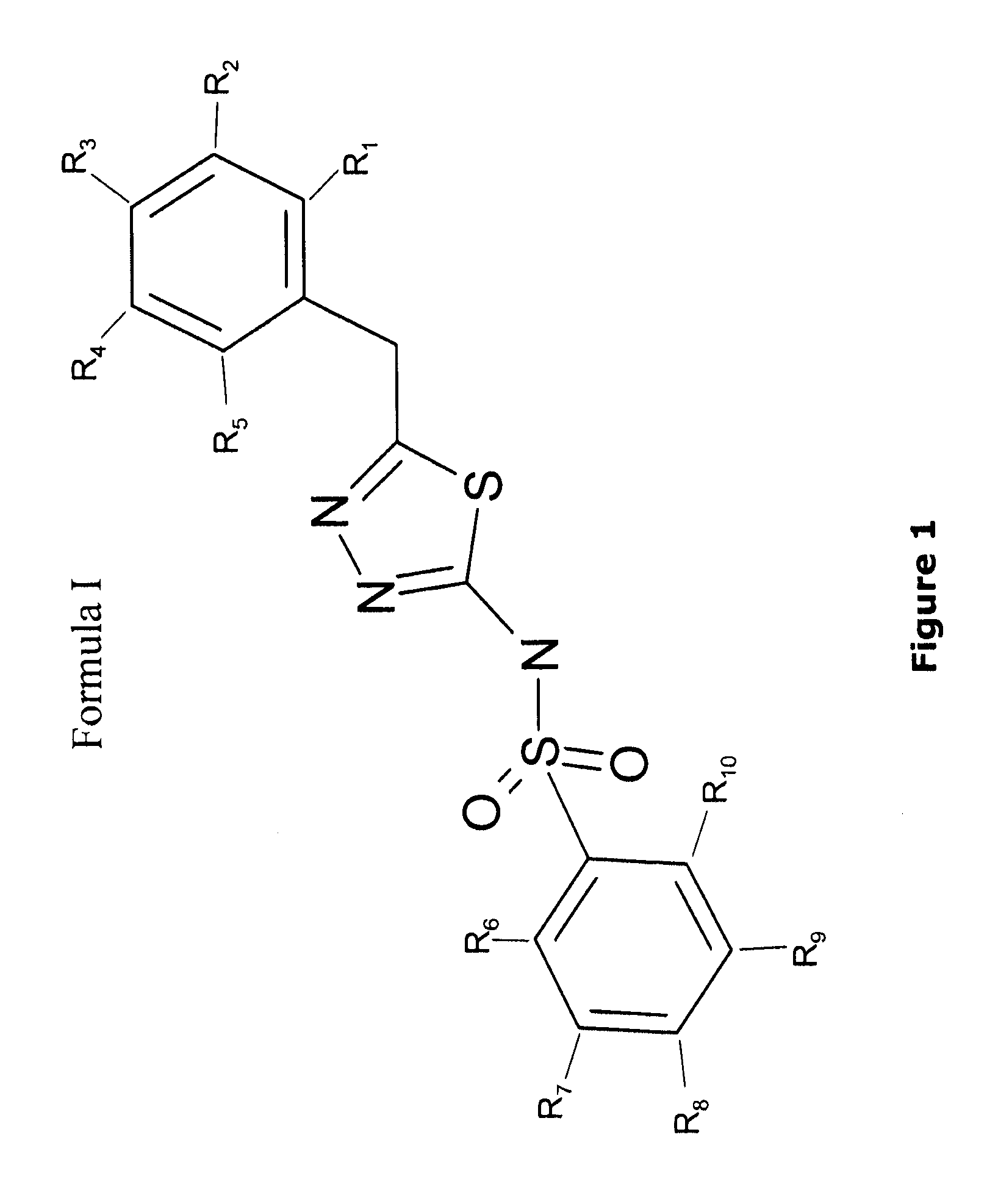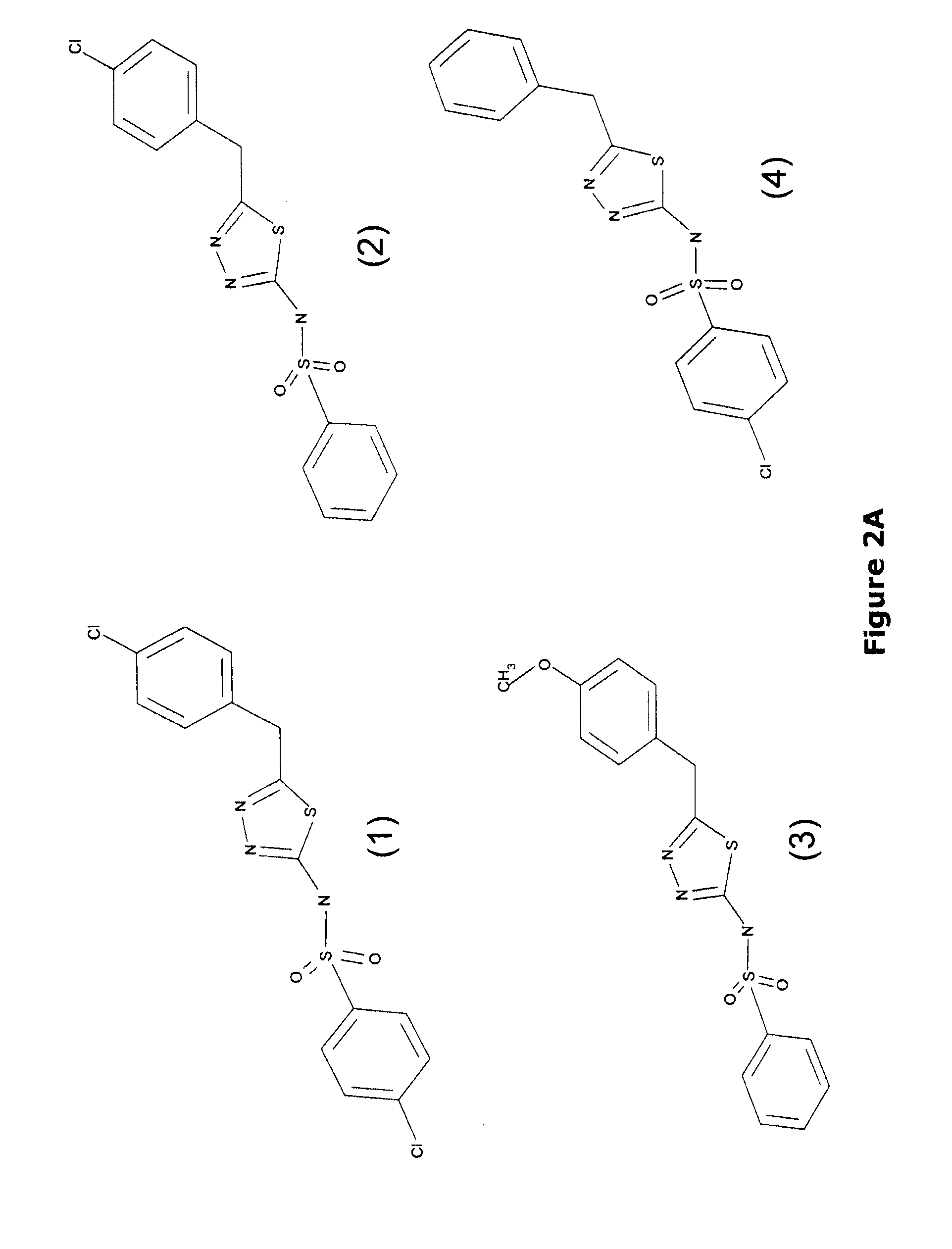Gamma-glutamyl transpeptidase inhibitors and methods of use
a technology of gamma-glutamyl transpeptide and inhibitor, which is applied in the direction of drug composition, biocide, heterocyclic compound active ingredients, etc., can solve the problems of reducing the effectiveness of drugs, increasing the chance of eradicating tumors, and many chemotherapeutic regimens failing, so as to/or radiation therapy, enhance the effect of chemotherapeutic agents
- Summary
- Abstract
- Description
- Claims
- Application Information
AI Technical Summary
Benefits of technology
Problems solved by technology
Method used
Image
Examples
Embodiment Construction
[0025]The present invention is directed to compositions and methods for enhancing the inhibition of neoplastic (cancer) cells, for example for the treatment, inhibition or prevention of tumors or malignant growths or other neoplasias in mammals. The present invention also provides a method for the prophylaxis or treatment of a reversible airways obstruction in a mammal, such as a human, comprising administration of a therapeutically effective amount of a compound of Formula (I) or a pharmaceutically acceptable salt, thereof, for the prophylaxis or treatment of a disease associated with reverse airways obstruction such as asthma, chronic obstructive pulmonary disease (COPD), allergic reaction, respiratory tract infection or upper respiratory tract disease. Other conditions or diseases which may be treated include renal and liver diseases, inner ear diseases and conditions, and degenerative diseases.
[0026]Expression of gamma-glutamyl transpeptidase (GGT) in neoplastic tumors contribut...
PUM
 Login to View More
Login to View More Abstract
Description
Claims
Application Information
 Login to View More
Login to View More - R&D
- Intellectual Property
- Life Sciences
- Materials
- Tech Scout
- Unparalleled Data Quality
- Higher Quality Content
- 60% Fewer Hallucinations
Browse by: Latest US Patents, China's latest patents, Technical Efficacy Thesaurus, Application Domain, Technology Topic, Popular Technical Reports.
© 2025 PatSnap. All rights reserved.Legal|Privacy policy|Modern Slavery Act Transparency Statement|Sitemap|About US| Contact US: help@patsnap.com



